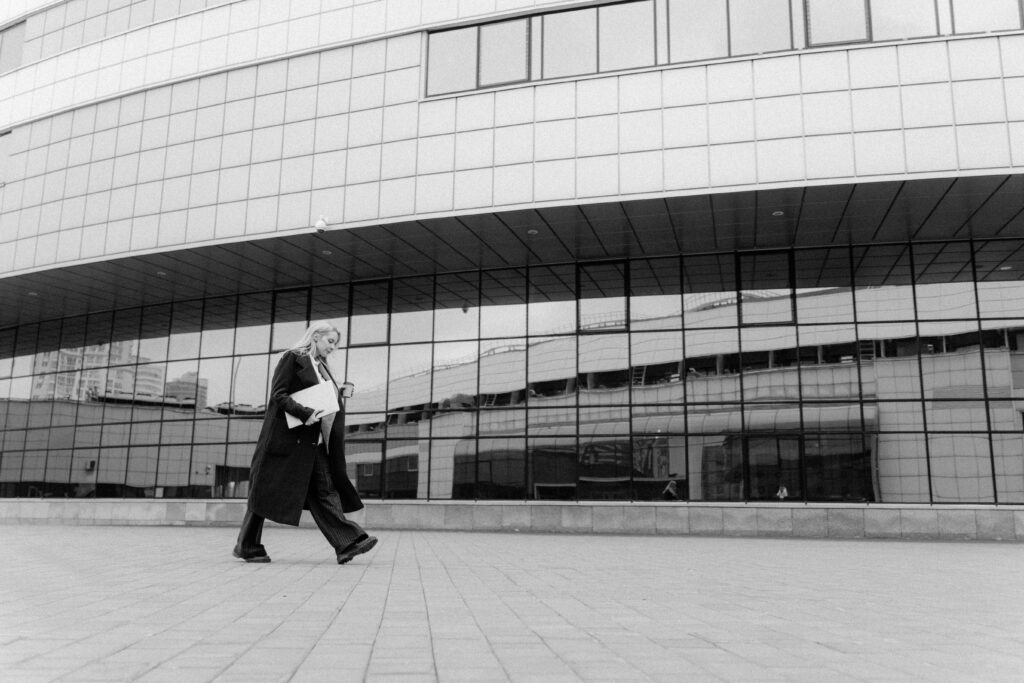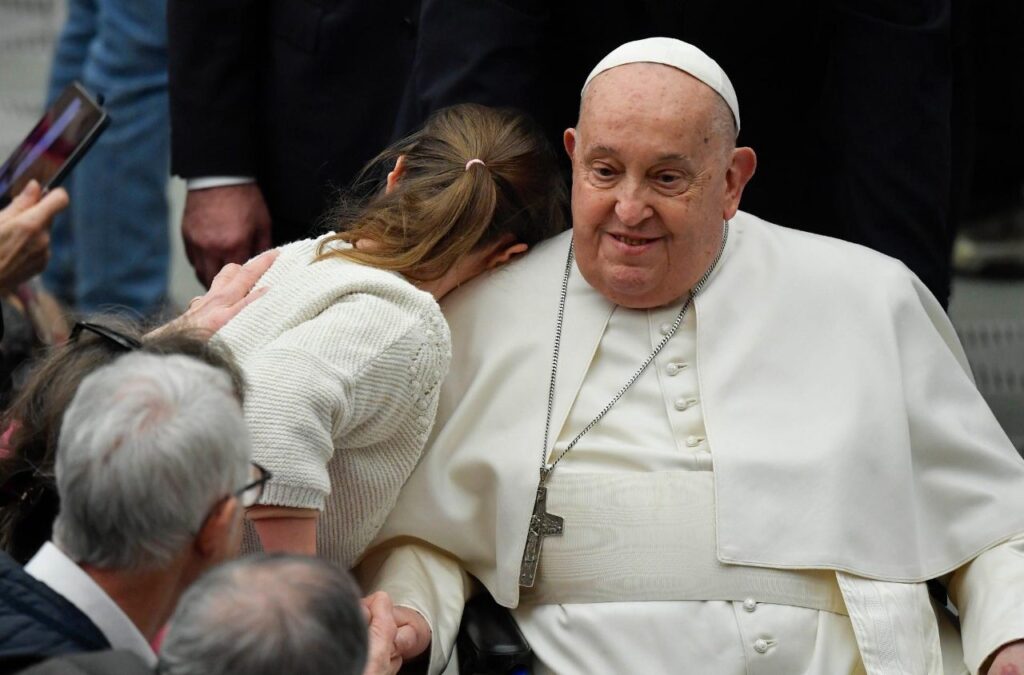Unexpected love
The beauty of love in the midst of pain and loss

As a celebrant and at the same time as a spectator, at funerals where I accompany families, I observe the silent emotion of the mourners in the second row, who are usually the grandchildren or not-so-direct relatives, neighbors, coworkers, or employees. Sometimes this emotion, as if intermittent, in the second row, stands out unintentionally compared to those in the first row, where the mourners seem to be less affected. It seems as if there were a mismatch in the order and intensity of the emotions. Some are explainable and even poetic, such as the feeling of children and grandchildren at the death of a father or grandfather, or mother and grandmother. The complicity that grandparents had with grandchildren is not the same as that which was had with children who could not be spoiled. It also happens that those in the front row bear the weight of the organization of the farewell and if they have accompanied the deceased to the end they are so exhausted that they do not even leave room for tears. Sometimes, in addition, the story of unresolved conflicts with the deceased or family conflicts that are difficult to resolve later are added.
The visual map of feelings at a funeral can give us an image of the life of the person for whom we pray and, at the same time, reflect on our relationships with others and with the one who knows and loves us best, our Father God.
As the day of the dead approaches, without falling into a macabre morbidity, we can project how our funeral could be. Aside from the humor that the idea can awaken, the mere fact of thinking about our epitaph can help us live more consciously in the present.
The exercise would consist of thinking about who our second-row characters would be. Those whose relationship has not been mediated by the natural commitments of life, such as direct relatives, for example. That is, those with whom we have had a more selfless relationship. The Gospel of Matthew in chapter 25, especially in verses 31 and following, which speaks of the final judgment, invites us to keep this thought in mind.
Recently, I buried an elderly businesswoman who worked until the end of her almost ninety years. She was a woman who was not generous in expressions of affection. She had a very hard childhood, which gave her great resilience, which is talked about so much today. At the same time, she found the philosopher’s stone of happiness. Every work day she went to her “office” where the current manager, who was her son, had assigned her the task of supervising part of the accounting. With enormous good sense, she accepted the setbacks of life and the peculiarities of her children and grandchildren without letting herself be influenced by the emotional reward.
On the day of the burial, the second row was largely filled with company workers of all ages. Some cried uncontrollably. There were many family stories in which the deceased had discreetly intervened, saving difficult economic situations.
When love is not expected, it becomes a gift. That is why Jesus, in the Gospel, always speaks of giving, inviting, without expecting anything in return, those who do not expect it. Lk. 14,12-14, suggests that we invite those who CANNOT return the invitation to the banquet of our life. Jesus insists on the same line when referring to almsgiving Mt. 6, 1-6, keeping anonymity.
Jesus is not only placing the limit of love above our selfishness, but he invites us to the freedom of loving without mediating petty interests.
Unexpected love, grief and emotions, family relationships, gratuitousness in love, funerals and farewells, pain and loss, complicity between generations, reflections on death, unconditional love, healing in grief, life story, importance of the second row, acceptance of the life cycle, living in the present, love without expectations grief, what we call pain, in many cases refers to the disappointments and frustrations in the face of what the person we are missing has not given us in life, or has not left as an inheritance. Or worse, what is ours, what we have received, we value it by comparing it with what others have obtained.
When affection is a demand, when love is measurable by the material amount that is invested, when the feeling of grievance towards the person who has left because they have not considered us worthy sets in, grief becomes difficult.
In many cases, it becomes hysterical grief. This is defined as that in which the person who has “hurt” us is denied. They are erased from our history. A lot of energy is invested in pretending it never existed.
A healthy mourning is based on a relationship of gratuitousness. The prototype is Job: – Job 1, 21 – The Lord gave me everything, and the Lord took it away; blessed be the name of the Lord! Naked I came from my mother’s womb, and naked I will return there. Friends, following the logic of compensation, seek to justify God and increase Job’s pain.
These days I have also accompanied the family of Ana, who lost her father. Ana is a woman over fifty years old who was born trisonomic, that is, what was previously called Down syndrome.
Everyone is worried about her, as if she did not know how to assume and situate herself again in the family sphere.
As often happens in these cases, people’s lives are sometimes hindered by excessive protection and positive discrimination. When it can happen, exactly the opposite, that an intellectual difficulty has surely caused other capacities to develop above normal.
When the ability to grasp reality is simplified and the double meaning of things, long-term expectations, ambivalence and ulterior motives do not occur, the very reality of death becomes something possible and natural. Ana did not understand why her mother cried over her father’s death if it was something unavoidable. And she consoled her with her caresses. Ana was sadder for her mother, for her cries, than for her father. “He got sick and died,” she would say to whoever she asked. She even explained in detail the cremation. At first, she did not understand it, but she quickly understood. The life cycle is something natural.
Ana does not even think about her future. Living in the here and now without worrying about a future that has not arrived is another characteristic of a thought where the concrete has more strength than the abstract.
And love is neither expected, nor bought, nor sold. It is a natural expression of relationship. What makes mourning difficult is the frustration that death can generate. When life is accepted naturally, grief flows. Accumulating wounds makes it difficult to love without expecting anything in return.
Sometimes fulfillment is closer to those who are transparent and truthful than to the “wise men,” who calculate before loving, while loving, they question and when they have loved, they settle accounts. To truly love, as the Pope says – Angelus of February 12, 2023 – “God does not reason with calculations and tables; He loves us like a lover: not to the minimum, but to the maximum! He does not tell us: I love you up to a certain point.” For Ana, loving is easy, she does not calculate. This is also affirmed by Bridget Brown, an American actress with Down syndrome who had the opportunity to meet Pope Francis at the Vatican. There she gave him a letter in which she claims to have “a full and wonderful life.”
The young woman has acted in films such as LOL, starring singer Miley Cyrus; in the comedy Wiener-Dog and in the series Chicago Justice.
In her letter she told the Pope that “the world needs to know that I do not ‘suffer’ from Down syndrome. I have a full and wonderful life, and I am filled with joy for being alive. I absolutely love my life.” This is how complicated grief is explained when love is expected or demanded and does not meet our expectations. Preventing frustration is living to love as unexpected, as an offering.
Related

Reversing Social Deterioration: A Task That Begins in Business Management
Alejandro Fontana
25 April, 2025
4 min

The Revolution of Tenderness
María Elizabeth de los Ríos
25 April, 2025
3 min

His Hope Does Not Die!
Mario J. Paredes
24 April, 2025
6 min

The Religious Writer with a Fighting Heart
Francisco Bobadilla
24 April, 2025
4 min
 (EN)
(EN)
 (ES)
(ES)
 (IT)
(IT)

